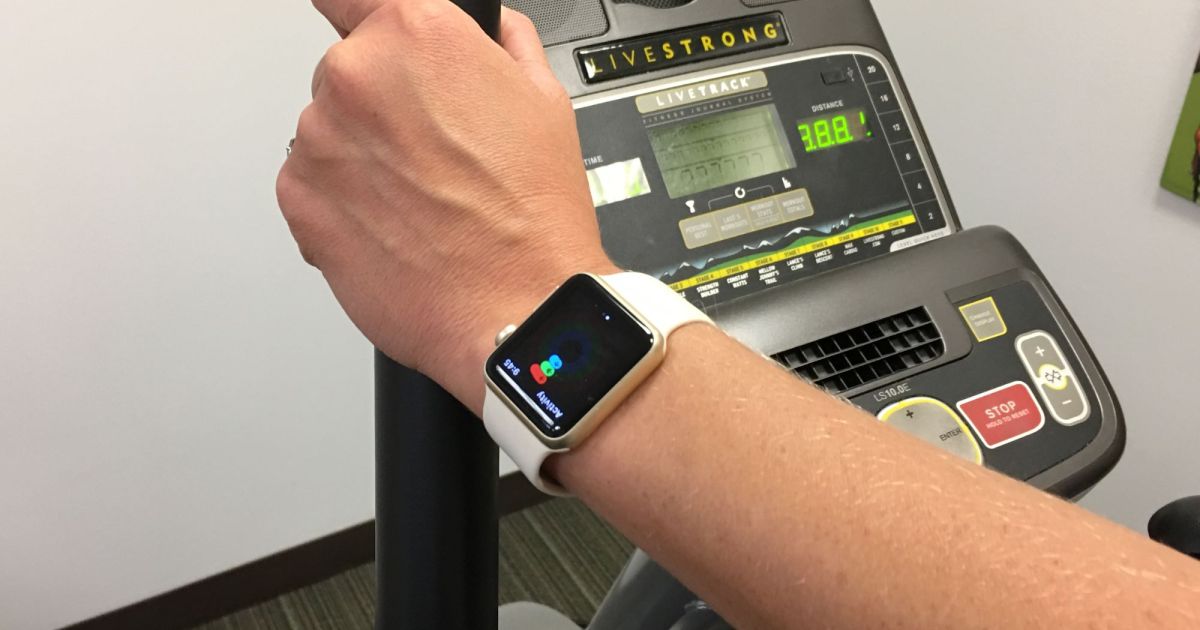Science
Apple Watch Could Detect Heart Disease Using AI Technology

Researchers at Yale University have developed a groundbreaking method that harnesses artificial intelligence (AI) to analyze electrocardiogram (ECG) data from smartwatches, potentially enabling early detection of serious heart conditions. The technology, which will be showcased at the upcoming American Heart Association meeting, aims to identify signs of structural heart disease, including weakened heart muscles, faulty valves, and thickened heart walls.
The AI model is designed to interpret simple, single-lead ECG readings from smartwatches, a task that typically requires more complex equipment found in medical facilities. In a study involving 600 volunteers, the AI demonstrated an impressive overall accuracy rate of 88%. It accurately identified individuals with heart disease 86% of the time and correctly ruled out health issues 99% of the time, indicating a robust potential for early screening.
Importance of Early Detection
The significance of this advancement cannot be overstated. Currently, diagnosing structural heart problems often necessitates an echocardiogram, a costly ultrasound procedure that typically requires a specialist. This AI-powered solution could democratize access to heart health screenings, allowing millions of smartwatch users to monitor their cardiac health conveniently and affordably.
As one of the leading doctors in the study emphasized, this technology could transform early detection, making it more accessible and scalable. The ability to flag potential heart issues before symptoms manifest could lead to timely medical interventions, ultimately saving lives. Given that heart disease remains the leading cause of mortality worldwide, the implications of this innovation are profound.
Future Directions and Next Steps
While the initial results are promising, further verification is necessary. The Yale team plans to expand testing to a larger population in real-world settings to ensure the reliability and effectiveness of the AI model. As the research progresses, there is optimism that smartwatches could evolve from fitness devices into essential health tools capable of providing hospital-grade insights directly from the wrist.
This innovative approach heralds a new era in personal healthcare, where technology empowers individuals to take charge of their health proactively. As developments unfold, the potential for smartwatches to serve as life-saving devices becomes increasingly tangible, marking a significant step forward in the intersection of technology and medicine.
-

 Science2 weeks ago
Science2 weeks agoInventor Achieves Breakthrough with 2 Billion FPS Laser Video
-

 Top Stories3 weeks ago
Top Stories3 weeks agoCharlie Sheen’s New Romance: ‘Glowing’ with Younger Partner
-

 Entertainment3 weeks ago
Entertainment3 weeks agoDua Lipa Aces GCSE Spanish, Sparks Super Bowl Buzz with Fans
-

 Business3 weeks ago
Business3 weeks agoTyler Technologies Set to Reveal Q3 Earnings on October 22
-

 Health3 weeks ago
Health3 weeks agoCommunity Unites for 7th Annual Into the Light Walk for Mental Health
-

 Health3 weeks ago
Health3 weeks agoCurium Group, PeptiDream, and PDRadiopharma Launch Key Cancer Trial
-

 Entertainment3 weeks ago
Entertainment3 weeks agoRed Sox’s Bregman to Become Free Agent; Tigers Commit to Skubal
-

 Entertainment3 weeks ago
Entertainment3 weeks agoMother Fights to Reunite with Children After Kidnapping in New Drama
-

 World3 weeks ago
World3 weeks agoR&B Icon D’Angelo Dies at 51, Leaving Lasting Legacy
-

 Health3 weeks ago
Health3 weeks agoNorth Carolina’s Biotech Boom: Billions in New Investments
-

 Science3 weeks ago
Science3 weeks agoNorth Carolina’s Biotech Boom: Billions Invested in Manufacturing
-

 Top Stories3 weeks ago
Top Stories3 weeks agoDisney+ Launches Chilling Classic ‘Something Wicked’ Just in Time for October









